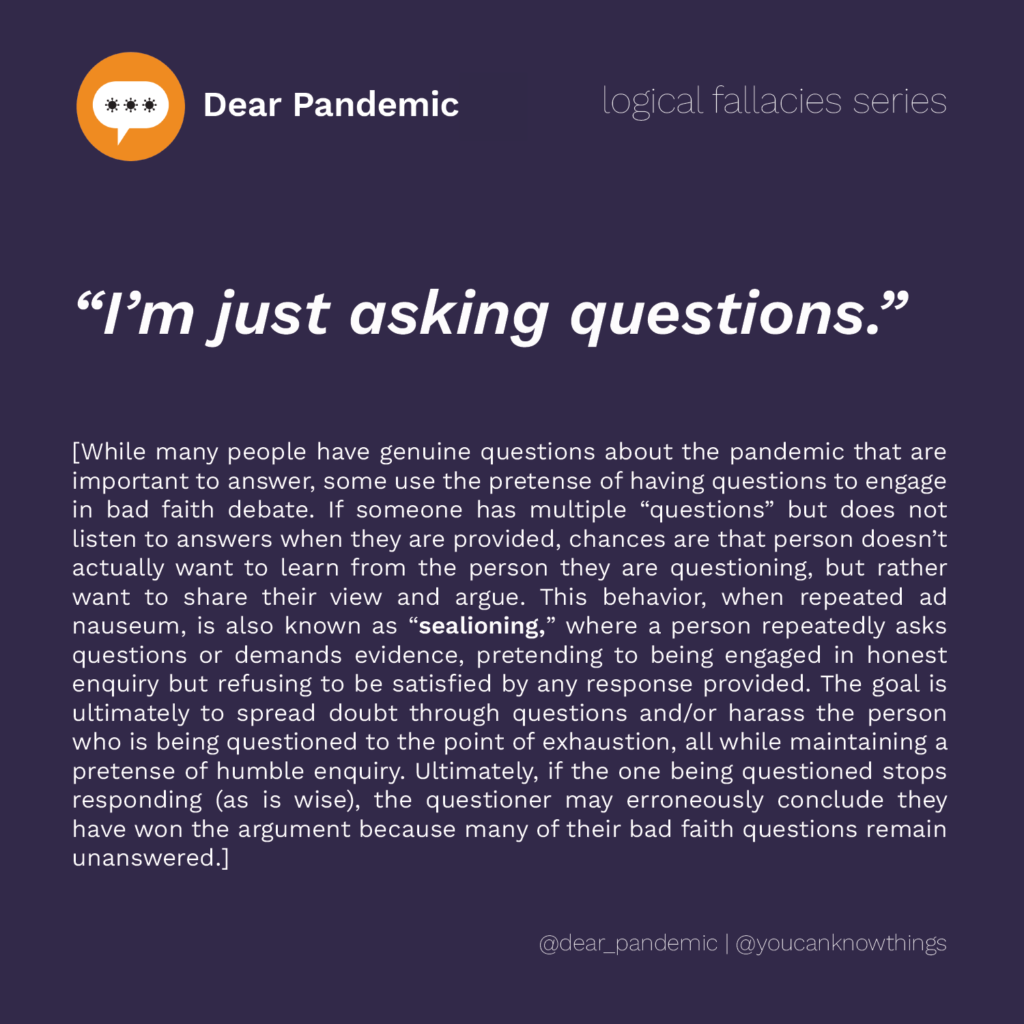At Dear Pandemic, we want to dish out science facts AND equip our readers with tools to make sense of data and science themselves.
This is the third post in an ongoing series by Dr. Kristen Panthagani of You Can Know Things, in which she dissects common logical fallacies and rhetorical strategies that have led people astray during the pandemic.
“Sealioning” 🦭
“I’m just asking questions…”
While many people have genuine questions that are worth answering, some use the pretense of questions to engage in bad faith debate. If someone has multiple “questions” but does not listen to answers when they are provided, chances are they don’t truly want to learn from the person they are questioning, but rather want to share their view and argue.
This behavior, when repeated ad nauseum, is known as “sealioning,” where a person repeatedly asks questions or demands evidence, pretending to being engaged in honest enquiry, but refusing to be satisfied by any response provided. The goal is ultimately to spread doubt through questions and/or harass the person who is being questioned to the point of exhaustion, all while maintaining a pretense of humble enquiry. Ultimately, if the one being questioned stops responding (as is wise), the questioner may erroneously conclude they have won the argument because many of their bad faith questions remained unanswered.
While not a formal fallacy, it is a common rhetorical strategy that gets its name from the sea lion in this comic, which illustrates the behavior.
⛔ Like most forms of trolling, the best strategy for sealioning is to not engage!

Further reading:
Forbes – ‘Sealioning’ Is A Common Trolling Tactic On Social Media–What Is It?
You Can Know Things – 10 logical fallacies used in vaccine arguments
More in this series:
Series on Logical Fallacies – The Appeal to Authority


